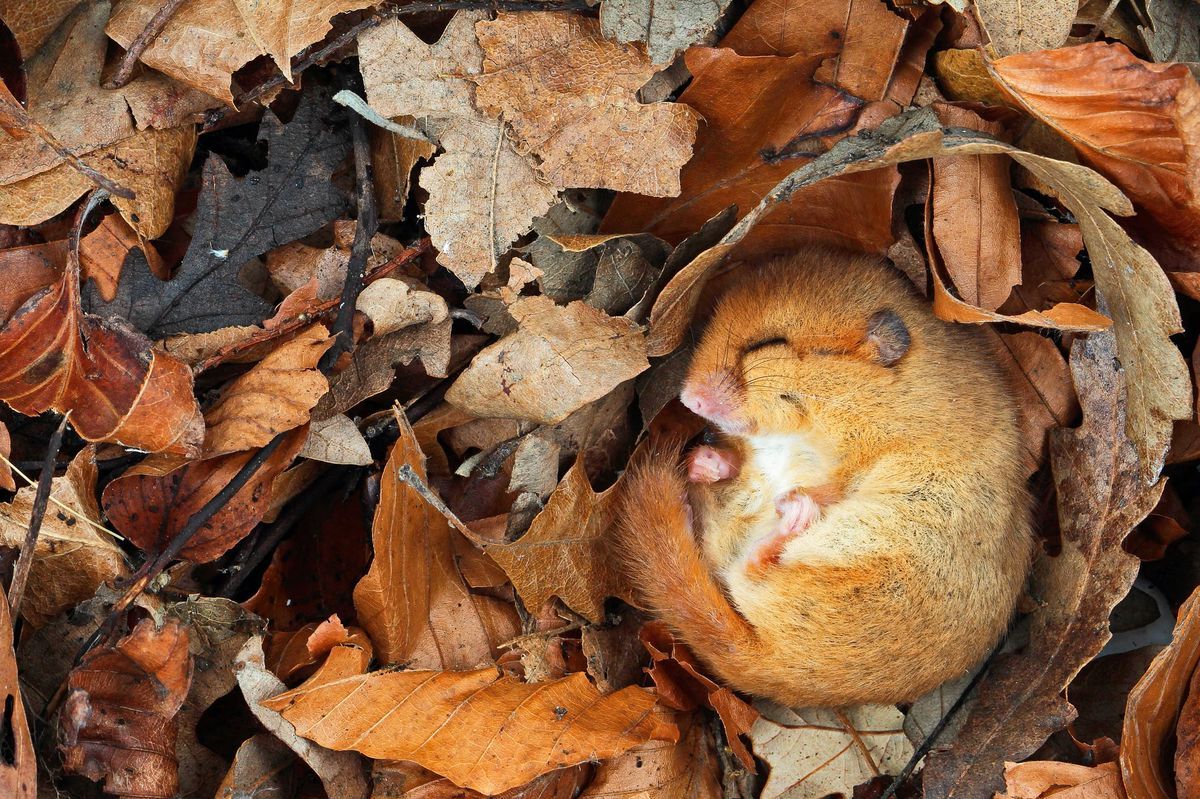
Ever wondered how animals survive harsh winters? Hibernation is the answer! This fascinating process allows creatures to slow their metabolism, conserve energy, and endure cold months without food. From bears to bats, many animals have unique ways of hibernating. Some even enter a state called torpor, which is like a mini-hibernation. Did you know that certain fish and amphibians also hibernate? They bury themselves in mud to escape freezing temperatures. Hibernation isn't just about sleeping; it's a survival strategy. Understanding these amazing adaptations can help us appreciate the resilience of wildlife. Ready to learn more? Let's dive into 50 incredible facts about animal hibernation!
Key Takeaways:
- Hibernation is a remarkable survival strategy where animals slow down their bodies to conserve energy during harsh winter conditions. It's not just sleeping; it's a complex process involving drastic changes in body functions.
- Animals prepare for hibernation by eating a lot to build up fat reserves, finding safe shelters, and undergoing hormonal changes. Hibernation isn't just for cold climates; some animals hibernate in warm or tropical regions too.
What is Hibernation?
Hibernation is a fascinating survival strategy used by many animals to endure harsh winter conditions. During this period, animals enter a state of deep sleep, significantly slowing their metabolism to conserve energy.
- Hibernation is not just about sleeping; it involves a drastic reduction in body temperature, heart rate, and breathing rate.
- Some animals, like bears, enter a state called torpor, which is a lighter form of hibernation allowing them to wake more easily.
- True hibernators, such as ground squirrels, can drop their body temperature to near freezing levels.
- Hibernation can last for several months, depending on the species and environmental conditions.
- Animals prepare for hibernation by eating large amounts of food to build up fat reserves.
Animals That Hibernate
Different animals have unique ways of hibernating. Let's explore some of the most interesting hibernators in the animal kingdom.
- Bears are perhaps the most well-known hibernators, though they actually enter a state of torpor.
- Ground squirrels are true hibernators, with their body temperature dropping to just above freezing.
- Bats hibernate in caves, where the stable environment helps them conserve energy.
- Hedgehogs roll into tight balls to minimize heat loss during hibernation.
- Some species of frogs can survive being frozen solid during hibernation.
How Hibernation Works
Understanding the mechanics of hibernation reveals just how incredible this survival strategy is.
- During hibernation, an animal's metabolic rate can drop to as low as 2% of its normal rate.
- Heart rates can decrease from hundreds of beats per minute to just a few.
- Breathing slows dramatically, with some animals taking only one breath every few minutes.
- The brain activity of hibernating animals is minimal, conserving energy.
- Fat reserves are the primary energy source during hibernation, slowly metabolized to sustain the animal.
Hibernation vs. Torpor
While often used interchangeably, hibernation and torpor are distinct states with different characteristics.
- Hibernation is a long-term state lasting weeks or months, while torpor can last just a few hours or days.
- Animals in torpor can wake up more easily and quickly than those in true hibernation.
- Torpor is used by animals like hummingbirds to survive cold nights.
- Hibernation involves a more significant drop in body temperature compared to torpor.
- Both states help animals conserve energy, but hibernation is more extreme.
Hibernation in Different Climates
Hibernation isn't limited to cold climates; some animals hibernate in warm or tropical regions too.
- In tropical climates, some animals enter a state called estivation to survive hot, dry periods.
- Estivation is similar to hibernation but occurs during the summer months.
- Lungfish can estivate in mud to survive drought conditions.
- Some desert tortoises estivate to avoid extreme heat.
- Hibernation and estivation both involve metabolic slowdown to conserve energy.
Human Impact on Hibernation
Human activities can significantly impact hibernating animals, sometimes with dire consequences.
- Climate change can disrupt hibernation patterns by altering seasonal temperatures.
- Habitat destruction can eliminate safe hibernation sites, forcing animals to find new shelters.
- Pollution can affect the health of hibernating animals, making it harder for them to survive.
- Disturbing hibernating animals can cause them to wake prematurely, depleting their energy reserves.
- Conservation efforts are crucial to protect hibernating species and their habitats.
Fun Facts About Hibernation
Hibernation is full of surprising and fun facts that highlight the incredible adaptability of animals.
- Some hibernating animals can go without food or water for months.
- Arctic ground squirrels can survive body temperatures below freezing.
- Hibernating bears do not urinate or defecate during their torpor.
- Certain fish species enter a hibernation-like state called brumation.
- Hibernation can be triggered by changes in daylight, temperature, and food availability.
The Science Behind Hibernation
Scientists continue to study hibernation to unlock its secrets and potential applications for humans.
- Research on hibernation could lead to medical advancements, such as improved organ preservation.
- Understanding hibernation may help develop new treatments for metabolic disorders.
- Hibernation studies could inform space travel, potentially allowing astronauts to enter a hibernation-like state.
- Scientists are exploring the genetic mechanisms that enable hibernation.
- Hibernation research can also provide insights into aging and longevity.
Hibernation Myths
There are many myths and misconceptions about hibernation. Let's set the record straight.
- Not all bears truly hibernate; they enter a lighter state called torpor.
- Hibernation is not just a long nap; it's a complex physiological process.
- Animals do not wake up periodically to eat during hibernation.
- Hibernation is not exclusive to mammals; reptiles, amphibians, and even some insects hibernate.
- Hibernation is not a response to cold alone; it can also be triggered by food scarcity.
Preparing for Hibernation
Animals go through extensive preparations to ensure they survive the hibernation period.
- Many animals enter a state of hyperphagia, where they eat excessively to build fat reserves.
- Some species create special hibernation dens or burrows to protect themselves from predators and the elements.
- Animals may gather food and store it in their hibernation sites for use when they wake up.
- Hormonal changes in animals signal the onset of hibernation, preparing their bodies for the metabolic slowdown.
- Social animals, like some species of bats, hibernate in groups to share body heat and conserve energy.
The Wonders of Hibernation
Hibernation is a fascinating survival strategy. Animals like bears, bats, and groundhogs use it to endure harsh winters. They slow their metabolism, lower body temperature, and conserve energy. This process isn't just about sleep; it's a complex adaptation that ensures survival when food is scarce.
Some animals, like the Arctic ground squirrel, can drop their body temperature below freezing without harm. Others, like the wood frog, freeze solid and thaw out in spring. These incredible feats show nature's ingenuity.
Understanding hibernation helps us appreciate the resilience and adaptability of wildlife. It also offers insights into medical research, like improving human health during long-term space travel or treating certain diseases.
Next time you see a sleepy bear or a quiet bat, remember the amazing biological processes at work. Hibernation is more than a long nap; it's a testament to nature's brilliance.
Frequently Asked Questions
Was this page helpful?
Our commitment to delivering trustworthy and engaging content is at the heart of what we do. Each fact on our site is contributed by real users like you, bringing a wealth of diverse insights and information. To ensure the highest standards of accuracy and reliability, our dedicated editors meticulously review each submission. This process guarantees that the facts we share are not only fascinating but also credible. Trust in our commitment to quality and authenticity as you explore and learn with us.


